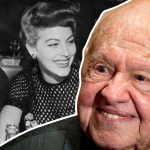It was a show that launched the careers of now-iconic actors and comedians like Lily Tomlin, Arte Johnson, and Goldie Hawn. Think Johnson saying, “Verrry interesting!” when playing a German WWII soldier, Hawn way too enthusiastically go-go dancing in a teeny tiny bikini, or Tomlin sitting in an oversized rocking chair, swinging her legs like a little girl. If you don’t recognize what show we’re talking about yet, you clearly don’t know your American TV history!
Laugh-In was a series that practically invented late-night TV. It filled to the brim with 30-second sketches, mostly hilarious but ultimately sympathetic takes on the counter-culture ideals of the 1960s, and memorable catchphrases like “Here come da judge!” “Sock it to me,” and “You bet your sweet bippy!” that people who grew up in the hippy heyday still love to spout. Though first aired decades ago, in the 1960s through the 1970s, Laugh-In inspired the likes of today’s SNL–in fact, Lorne Michaels was a fledgling writer on the show–and confused TV executives across the country.
Sadly, most of the quick-witted core cast members have already sounded their last chuckle, many under tragic circumstances. Join Fact Verse to learn more about the laugh in cast members and find out how they died.
Dan Rowan
Dan Rowan was one half of Rowan and Martin, the irrepressible hosts of Laugh-In. Rowan played the “straight man” in the series, providing a counterbalance to Dick Martin’s bungling, dense character. ″I’m the authority: settled, steady, sober, reasonable, square, and indignant at the life he leads,″ he once said of his Laugh-In role. On a 1967 evening, the same night the very first episode of their iconic show was set to screen. Rowan was heard to pronounce: ″There’s never been anything on television like it.″ And he couldn’t have been more right. Indeed, Rowan and Martin’s antics set the stage for American late-night comedy and satire. After the show, Rowan lost his appetite for performing and, due to complications from diabetes, retired to live on a houseboat in France. He died of lymphatic cancer in 1987, just nine months after his diagnosis. Join Fact Verse to learn more about the laugh in cast members and find out how they died.
Dick Martin
Dick Martin met his partner in comedy crime, Dan Rowan, in the early 1950s. The duo spent ten years touring nightclubs, spreading their love of good gag to audiences across the country. But in 1968, all that changed. From the first screening of Laugh-In, Martin and Rowan were propelled into the American hall of funny fame. On the show, he was known for his mastery of one-liners, non-sequiturs, sight gags, and double-entendres–something rarely seen on the sleepy sitcom landscape of 1960s and 70s television. You’ve probably heard someone say his signature catchphrase, “You bet your sweet bippy,” more than once. After Laugh-In, moved into directing, heading up shows like Family Ties and The Bob Newhart Show. In 2008, the lung he lost to tuberculosis as a teenager came back to haunt him. Dick Martin passed away at home that year due to respiratory illness.
Are you looking for more deep dives into the complicated lives of American TV’s most famous (and infamous) celebrities? Be sure to like this video and subscribe to our channel for more just like it. Hit the notifications bell to see the freshest videos right when they’re uploaded. Join Fact Verse to learn more about the laugh in cast members and find out how they died.
Judy Carne
An actor’s tale doesn’t get more tragic than Judy Carne’s Laugh-In life story. Carne played one of the show’s most memorable characters. Who was best known for her mini-skirts, mod makeup, and the catchphrase, “Sock it to me.” Her gag is probably a little brutal for this generation to follow. Whenever Carne would utter that innocuous-sounding line. Someone would throw a bucket of water on her, hit her with a plank of wood, drop her through a trapdoor. Or some other usually violent misfortune. The sprightly Carne was born in Britain in 1939 and appeared on popular 1950s and 60s shows like Gidget, I Dream of Jeannie, and The Patty Duke Show. She shot to fame, however, after joining the Laugh-In cast. But that fame came with a price: she was recognized wherever she went to the point where she would get water thrown on her in public. (Yes, you heard that right.) Just as the laughter left the jokes, Carne left the show. She married and quickly divorced Burt Reynolds. Faced legal trouble for drug addiction in the 70s, and then became somewhat of a recluse through the 1990s. She died in 2015 at the age of 76, probably from pneumonia. Join Fact Verse to learn more about the laugh in cast members and find out how they died.
Henry Gibson
Henry Gibson had the endearing status as the kindest person on the jester-filled Laugh-In set, according to the show’s announcer, Gary Owens. But, of course, he was also a very, very funny man. Though he had other characters, most often as a man of the cloth, he was most famous for being a flower-wielding poet. He’d appear on stage with a massive flower and start a short but deftly described poem using his signature catchphrase, “A poem, by Henry Gibson.’’ Apparently, he even went to the trouble of writing every single poem by himself, something he was very proud of. After Laugh-In finished up, Gibson used his fame to support environmental causes and had numerous roles in television shows–most notably the cantankerous Judge Clark Brown on Boston Legal. Gibson died of cancer in his home in 2009. He was 73 years old. Join Fact Verse to learn more about the laugh in cast members and find out how they died.
Arte Johnston
Most people remember Arte Johnston on Laugh-In for his most famous character–that of a German stormtrooper Wolfgang–and his iconic catchphrase, “Verry interesting.” Said, of course, in an overly faux German accent. Wolfgang was apparently inspired by the 1942 movie Desperate Journey starring Errol Flynn and Ronald Reagan. Johnston actually developed more than 60 characters for the ground-breaking show, from dirty old Tyrone F. Horneigh and Eastern European singer Piotr Rosmenko to a bonkers Indian guru called Abbi Shankar. Despite winning a 1969 Emmy Award for his comedy genius, Johnston left the show four seasons in. He found the workload too demanding and wanted to spend more time on his own project. Arte Johnston managed to live until the grand old age of 90, passing away from heart failure in Los Angeles after battling cancer for three long years.
Alan Sues
Few Hollywood comics are wackier or more flamboyant than Alan Sues. Sues antics as wild characters like hung-over children’s entertainer Uncle Al the Kiddies’ Pal and effeminate sports presenter Big Al were one of the critical reasons for the runaway success of Laugh-In. Though Sues wasn’t openly gay and never discussed his sexual orientation for fear it would ruin his career. His campy portrayals served as inspiration for many gay folks at the time. In fact, he started out in theatre, making his big stage debut on Broadway in the 1953 season of Elia Kazan’s Tea and Sympathy. Sues then landed spots in some pretty big TV shows and films of the time–The Wild, Wild West, The Twilight Zone, and The Americanization of Emily–before finding his happy place in the long-running Laugh-In. After the show left the air in 1973, he continued with TV parts. Even appearing in a weird and wonderful commercial for Peter Pan peanut butter. Alan Sues made it to 85, dying in his home in West Hollywood from a heart attack in 2011. His beloved dog, Doris, was by his side.
Richard Dawson
You’ll most likely recognize Richard Dawson as the host of the super popular game show Family Feud. Where he teased, tempted, and guffawed his way into the hearts of contestants and viewers alike. But before he landed that star-making gig, he was already famous for his comedic abilities. He played the Cockney accented Peter Newkirk on Hogan’s Heroes. A show set in a German POW camp that ran on CBS from 1965 to 1971–“a year longer than Hitler,” he would often joke. He then joined the cast of Laugh-In, appearing in a whopping 58 episodes. When Laugh-In canceled in the early 1970s. Dawson pursued his passion for game shows and landed several spots before finding his happy place on Family Feud. He worked right up until 2000, when he narrated TV’s Funniest Game Shows for Fox. Unfortunately, Richard Dawson’s smoking addiction–he smoked four packs a day almost his entire life–finally caught up with him, and he died in 2012 of esophageal cancer.
Gary Owens
Laugh-In would never have been the same without Gary Owens’ deep baritone leading us to the antics. He was probably most recognized on TV, visually, as the show’s announcer, always seen with his trademark hand-over-the-ear style of announcing. He imitated earnest news reporters and sportscasters for comic effect. However, children of all generations would be more likely to recognize Owen’s voice. Outside of Laugh-In, this mahogany-toned actor voiced characters in over 3,000 cartoons: Space Ghost, Blue Falcon, Roger Ramjet, Powdered Toast Man, and Batman. He’s so renowned for his cartoon voice acting that he even appeared as himself. Albeit in animated form, in shows like Garfield and Friends, The Fantastic Four, Eek the Cat, and Bobby’s World. Sadly, Gary Owens had Type 1 diabetes since the age of 8. The affliction finally took its toll on his body. And he passed away at home in 2015 at the age of 80. Join Fact Verse to learn more about the laugh in cast members and find out how they died.
Do you have fond memories of Laugh-In from back when it initially aired in the 1960s through to the early 1970s? Or are you a bright young thing who’s now inspired to dive into the episodes for the first time? Share your memories, insights, and curiosity about this ground-breaking TV show in the comment section below. Before you go, don’t forget to like and share this video–if you enjoyed it, of course! And if you haven’t already, head over to the Facts Verse channel to subscribe and hit that notification bell for more great content.



